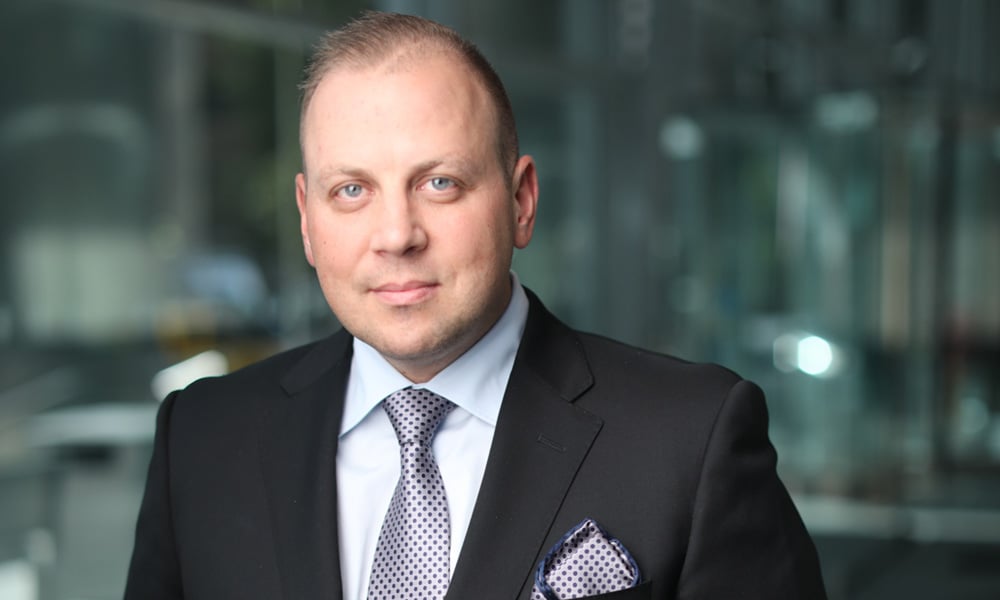Coronavirus crisis offers reminder of crucial investing lessons for advisors and clients alike, says industry veteran

No matter what stage of the market cycle it is, behavioural coaching is one of the most important functions an advisor has to fulfill. In bear markets, it’s about talking people out of making poor fear-based decisions; during bull markets, clients have to be convinced that missing out on heady stock-market returns today is ok if it means maintaining a measure of safety for a crisis tomorrow.
As the effects of the coronavirus continue to spill out across economies and industries, it seems tomorrow has come — and it’s time for advisors like Chad Larson to reaffirm their value.
‘We’ve been very fortunate’
“The past couple of weeks have been packed with fielding client calls and providing much-needed assurances,” said Larson, portfolio manager, senior vice president at the MLD Wealth Group with Canaccord Genuity Wealth Management. “People that did call were surprised to hear we weren’t affected as badly as they’d thought.”
He said the first two weeks of the crisis played out like a movie, with much active trading in clients’ portfolios to put them into as defensive a position as possible. While he and his team had been warning and moving client portfolios defensively during 2019 and through to early January, there has since been a complete dislocation in the financial markets, leaving practically no safe haven across asset classes.
“We saw it was most pronounced on a relative basis in the bond market; in the real asset space, anything with a bid was being hit. People wanted liquidity at any price,” Larson said. “Aside from that, we’ve been very fortunate. Most of our clients have been with us for a very long time, and understand that one quarter is not how you measure wealth management.”
Larson’s investment approach, which he described as akin to a multifamily office, has largely worked well through the chaos of recent weeks. Part of that has been the ability to use discretionary models, which he believes could be more beneficial as he considers moving more client assets into them.
“I’ve heard some very sad stories from colleagues about panicked investors who sold at the bottom several weeks ago, and now they’re having to buy at the top,” he said. “They could’ve avoided that if only they had the right team in place. And with the intraday volatility we’ve seen, having a platform that bypasses the requirement of calling each client individually before making trades has been vitally important.”
‘You need a living plan’
Comparing the current crisis to the Global Financial Crisis of 2008-2009, Larson noted two important differences. First, while people could lay blame at the feet of Wall Street and big banks for the last event, it’s not that easy this time. The coronavirus has dealt a knockout punch to the global economy, pushing the world into recession as travel bans, social distancing, and other public health and safety measures take their toll.
Today’s crisis has also delivered a massive blow to many baby boomers’ assets. They’ve had 11 years to recover from the GFC’s impact on their wealth. Now, they don’t have as much of a cushion to count on, assuming they have one at all.
“This just drives home the importance of having a real financial plan,” Larson said. “Beyond going a financial summary of your assets, it should include a liquidity forecast, a picture of your cash flow and cash flow needs, and stress tests for loss of employment or income. I recently read a quote saying that any financial plan that cannot handle a 20% drawdown was never really a plan to begin with; for that, you need a living plan, one that continuously incorporates tax changes, regulatory shifts, and market shifts.”
Things have also been tough for many self-directed investors, who are now finding that lower barriers to investment management aren’t necessarily always a good thing. As the S&P 500 followed a Nike swoosh-like trajectory in 2019, it might have been hard for advisors to answer when clients asked “Why am I paying fees? Anyone can do this.” But as Larson pointed out, anyone can get a lift when the winds are strong enough.
“For years, we’ve been witnessing a war of basis points, and the use of online trading platforms has never been cheaper,” Larson said. “At their core, investment management and market access have been commoditized. But what you do with those ingredients is very different; people will realize the need for high-end professional advice, particularly from advisors with the ability to respond competently in times like this.”
Chad Larson is a Portfolio Manager at Canaccord Genuity Wealth Management. His views, including any recommendations, expressed in this article are his own only, and are not necessarily those of Canaccord Genuity Corp.



